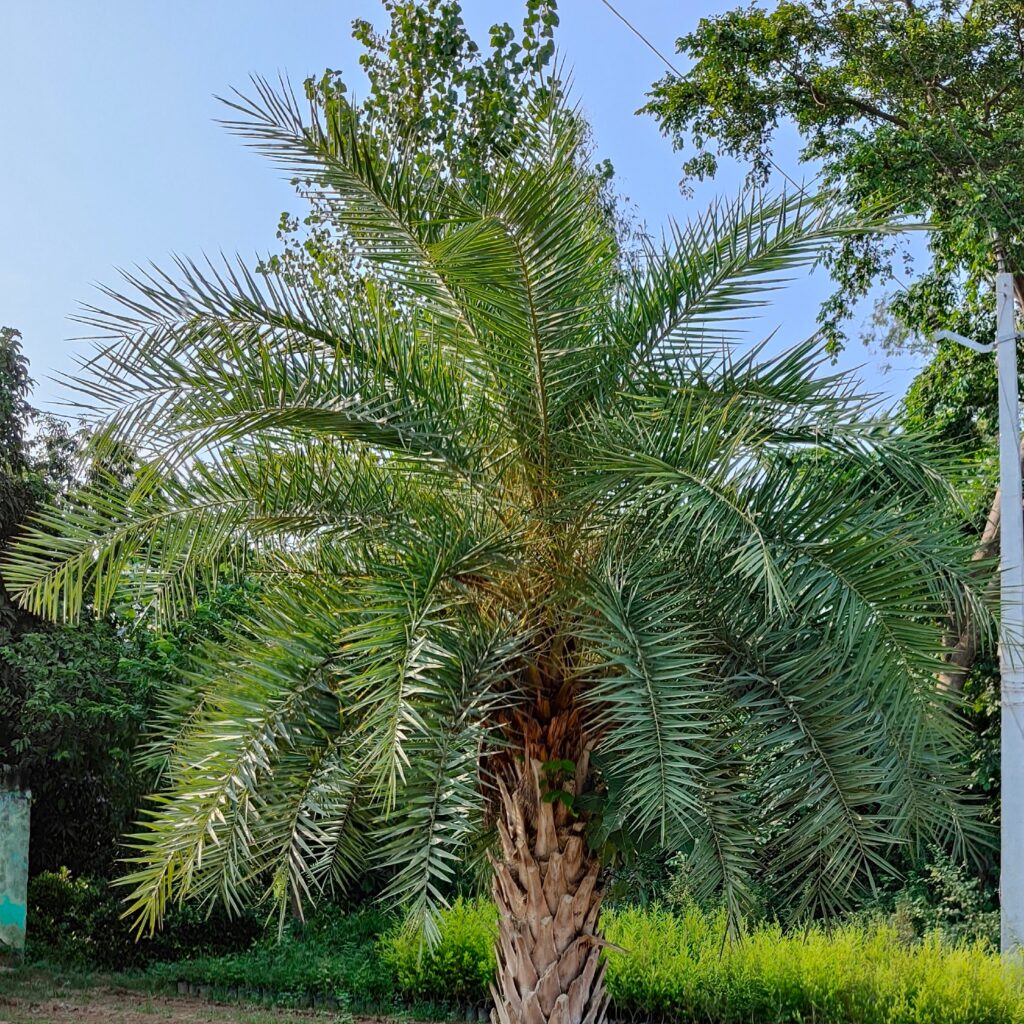
Date palm trees, scientifically known as Phoenix dactylifera, are one of the oldest cultivated trees in the world and have been an integral part of human civilization for thousands of years. Here are some key points about date palm trees:
- Origin: Date palms are native to the Middle East and North Africa, particularly in regions with arid or semi-arid climates.
- Appearance: Date palm trees typically have a tall, slender trunk topped with a crown of large, feathery fronds. The trunk is usually rough and fibrous, with a distinctive diamond-shaped pattern.
- Fruit: The most notable feature of date palms is their fruit, known as dates. Dates are oval-shaped, typically with a wrinkled skin ranging in color from bright red to yellow when ripe, depending on the variety. They have a sweet, caramel-like flavor and are rich in vitamins, minerals, and fiber.
- Cultivation: Date palms are primarily cultivated for their fruit production. They require hot, arid climates with plenty of sunlight and well-drained soil. They are often grown in oasis environments or in desert regions where groundwater is accessible.
- Propagation: Date palms are propagated through seeds or offshoots. However, most commercial date production relies on offshoots, as they produce trees with consistent fruit quality and characteristics.
- Cultural significance: Date palms hold significant cultural and religious importance in many societies. They are mentioned in various religious texts, including the Quran and the Bible. Dates have been a staple food in the diets of people in the Middle East and North Africa for thousands of years.
- Economic importance: Date palm cultivation is an important economic activity in regions where they are grown. Dates are not only consumed fresh but are also dried, processed into products like date paste or syrup, and used in various culinary applications.
- Environmental benefits: Date palm trees play a role in desert ecosystems by providing shade, preventing soil erosion, and acting as windbreaks. They also contribute to biodiversity by providing habitat for birds and other wildlife.
Overall, date palm trees are valued for their fruit, cultural significance, and contributions to the ecosystems in which they grow. They continue to be an essential part of agriculture and livelihoods in many parts of the world.